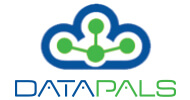Latest Trends
IoT and Big Data
IoT (Internet of Things) in catching fire recently. There are excitement in Silicon Valley about this topic. Talks and meetups are springing everywhere on IoT. When you visit startup scenes (incubabors, and entrepreneur events), you will meet entrepreneurs who make their next bet on this riding trend.
Running Hadoop in the Cloud
With the growing popularity of cloud computing, enterprises are seriously looking at moving workloads to the cloud. There are issues around multi-tenancy, data security, software license, data integration, etc., that have to be considered before enterprises can make this shift. Even then, not all workloads can be moved easily to the cloud. In recent years, Hadoop has gained a lot of interest as a big data technology that can help enterprises cost-effectively store and analyze massive amounts of data. As enterprises start evaluating Hadoop, one of the questions frequently asked ...
10 Big Data Implementation Best Practices
Big data is still relatively new with many organizations, and its significance in business processes and outcome has been changing every day. Here are some of the key best practices that implementation teams need to increase the chances of success.
1. Gather business requirements before gathering data. Begin big data implementations by first gathering, analyzing and understanding the business requirements; this is the first and most essential step in the big data analytics process. If you take away nothing else, remember this: Align big data projects with specific business goals.
Hadoop Meets SQL
Big data technologies like Hadoop are providing enterprises a cost-effective way to store and analyze data. Enterprises are looking at using Hadoop to augment their traditional data warehouse. Compared to traditional data warehouse solutions, Hadoop can scale using commodity hardware and can be used to store both structured as well as unstructured data. Traditional data warehouses based on relational database technologies have been around for a long time and have mature sets of tools for querying and analysis. Business users use SQL as the query language to perform ad-hoc queries ...
